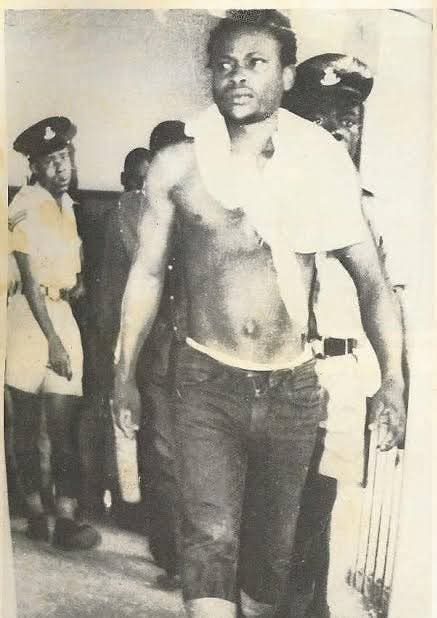Isaac Adaka Boro: Our Hero, the Eternal Flame of Niger Delta Resilience
Today, as the tides of the Nun River gently kiss the mangrove roots, the spirit of Major Isaac Jasper Adaka Boro hovers once again over the land he so dearly loved. Each year, May 16th arrives not just as a date on the calendar but as a moral checkpoint—a solemn reminder of a man who dared to dream beyond the bounds of injustice. The Niger Delta remembers. The Niger Delta mourns. And, most importantly, the Niger Delta must reflect.
Isaac Boro was no ordinary man. Born on September 10, 1938, in Oloibiri, the same soil that gifted Nigeria its first drop of crude oil, Boro grew up witnessing the paradox of wealth and poverty: rivers rich in oil, but people poor in hope. He was a university student at the University of Nigeria, Nsukka, when he traded the pen for the gun—not out of hatred for his country, but out of profound love for his people. He believed, as we must today, that silence in the face of oppression is complicity.
The Twelve-Day Revolution: A Cry from the Creeks
In February 1966, Isaac Boro led the famous Twelve-Day Revolution, a symbolic yet powerful act of defiance against marginalisation. With just 159 men under the banner of the Niger Delta Volunteer Force (NDVF), he declared the secession of the Niger Delta Republic. Though short-lived, the rebellion echoed across the Nigerian state like the rumbling of a distant thunderstorm—impossible to ignore and rooted in justice.
Metaphorically, Boro was a lighthouse in the murky waters of Nigerian politics—a beacon for the downtrodden. His actions were not for fame or personal gain; they were a plea for justice, equity, and fairness. Though arrested and sentenced to death for treason, he was later granted amnesty by the Yakubu Gowon government and enlisted in the Nigerian army to fight in the civil war. Ironically, the man once branded a rebel became a soldier of unity. He died in service to the same country that once condemned him, killed in action on May 16, 1968, at Okrika.
A Legacy Trampled by Successive Generations
Over fifty years have passed since that gunshot silenced Boro, but his cries for liberation still echo. The creeks he fought to liberate are now littered with the debris of failed leadership. The oil that once symbolized prosperity has become a curse—a resource looted by a political elite whose loyalty is not to the people but to personal greed.
Boro would weep today. He would weep not because his life was in vain, but because his vision was betrayed. The institutions meant to serve the people have become instruments of oppression. Budgeted billions vanish like morning mist. Our youth, vibrant yet neglected, drown in unemployment, while the dreams of our ancestors lie buried under the weight of political apathy.
The Call of the Moment
Today’s commemoration must go beyond laying wreaths and making speeches. It should not be a ritual of remembrance but a resurrection of purpose. Isaac Boro’s story is a call to conscience. It challenges us to rise from our slumber, to stop dancing to the drumbeats of those who profit from our silence. We must not continue to masquerade as patriots while forming unholy alliances with the very forces that oppress our people.
His legacy must fuel a new kind of revolution—not of arms, but of minds. We must reclaim the narrative. We must invest in education, demand transparency, support grassroots development, and hold our leaders accountable. Let us not be like the proverbial man who, standing in the river, still washes his hands with spittle.
Conclusion: A Wake-Up Call
Boro’s life is a poem of sacrifice, his death a dirge of betrayal, but his memory is a torch. Let it burn in our hearts. Let it guide our path. Let today be not just a memorial but a mirror. If we truly honour Boro, we must live the values he died for.
The Niger Delta must rise—not with violence, but with vision. Not with fear, but with fortitude. Not with bitterness, but with boldness. The time to awaken is now. Boro’s bones may lie still, but his spirit roars like the Atlantic.
Let us answer.



